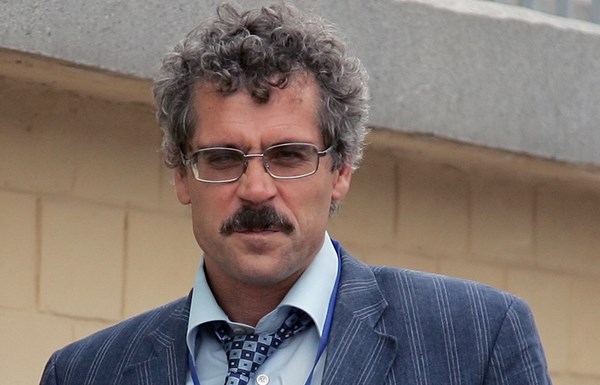Russian doping scandal whistleblower: Putin knew of abuses in Russian sport
Former head of the Moscow Anti-Doping Laboratory Grigory Rodchenkov said that Putin may have had a role in the doping scandal.
A full version of the program by Seppelt, who has shot several films on doping problems in Russia, is scheduled to be released on the night of January 30. Several hours earlier, ARD uploaded a trailer to YouTube announcing an interview with WADA informant Grigory Rodchenkov, who is now hiding in New York.
The trailer contains a recording of Rodchenkov claiming that Vladimir Putin was aware of the abuses in Russian sport. The Russian president “wanted to know everything”, Suddeutsche Zeitung cites Rodchenkov as saying in the ARD interview. “It was a very simple chain,” Rodchenkov explained, “I reported on it to Deputy Sport Minister Yury Nagorny, who forward the information to Vitaly Mutko, who then contacted Putin”.
Rodchenkov is convinced that the entire system was structured from the top down, because only the Russian president could have used the FSB to cover up the athletes’ positive doping tests. In the trailer, Rodchenkov did not mention any facts to support his assertions.
As reported by Suddeutsche Zeitung, the International Olympic Committee now needs to react to Rodchenkov’s new accusations, because earlier it accepted all his evidence and considered the former head of the Moscow Laboratory a “reliable witness”.
Previously Rodchenkov did not accuse the Russian President of involvement in the doping scandal. Associated Press, citing a report by WADA head Dick Pound, reported in January 2016 that Putin may have been informed of the doping abuses by Russian athletes. This was explained with reference to the fact that Lamine Diack, former president of the International Association of Athletics Federations (IAAF), after receiving a report on doping abuses by Russians, said that he was “in a difficult situation, which could only be solved by Russian President Vladimir Putin, with whom he had a friendship”.
At the annual press conference in Moscow in December 2017, Putin said it was strange that Rodchenkov was head of the Anti-Doping Laboratory, since in 2011 he faced charges of trafficking illegal substances. “And what is even stranger for me, for a person who worked for a long time in intelligence, is that all this filth was hauled out of North America – from the US and Canada. How was it let through customs, when there is such strict control?” the president asked.
Putin acknowledged that appointing Rodchenkov as the head of the Moscow Anti-Doping Laboratory was a mistake. “And how did it happen that such an entity ended up the head of our anti-doping organization?” Putin asked. “I know all too well who did this,” he added. A year earlier, Putin had said that Rodchenkov “forced people” to take prohibited substances. “And as for those who refused, say, the swimmers, he still thought up some sanctions against them,” Putin remarked. “And then, when his tail was pinned, and he could not simply be imprisoned, he ran away and started there, protecting himself and guaranteeing himself a place under the sun, to ‘leak’ everything there,” the Russian president commented.
In 2016 Rodchenkov left Russia, later explaining his departure by claiming that he had received intel that the staging of his “suicide” was being planned. In May the same year he said that dozens of Russians had abused doping during the Olympics in Sochi. He explained that he himself had developed a mixture of three prohibited substances, which was mixed with alcohol and administered to the Russian athletes. According to him, Russian intelligence agents worked in a secret laboratory and swapped the results of the doping tests.
Rodchenkov’s statements became the basis of several WADA reports on mass doping abuse by Russian athletes. The investigation resulted in a large group of Russian athletes being banned from participating in the Olympics in Rio de Janeiro, as well as the disqualification of a large number of athletes who competed in the Winter Olympics in Sochi.
On December 5, the executive committee of the International Olympic Committee (IOC) disqualified the Russian Olympic Committee for the duration of the Winter Games in Pyeongchang in 2018. Only “clean” Russian athletes will be allowed to attend, and not as a team. Rodchenkov’s evidence formed part of the basis for the IOC’s decision.
